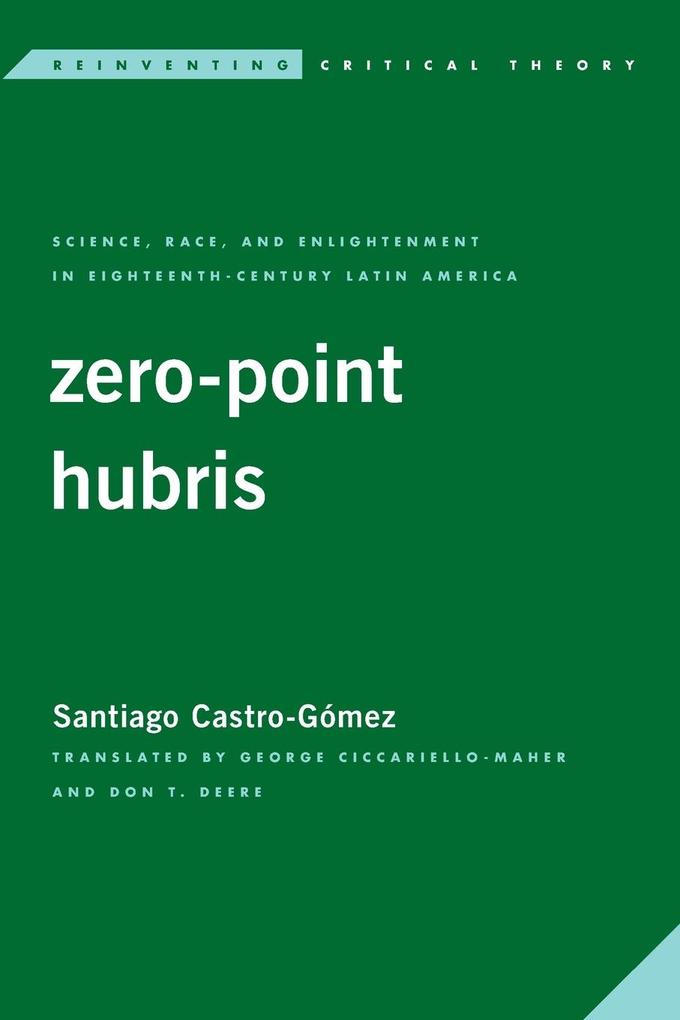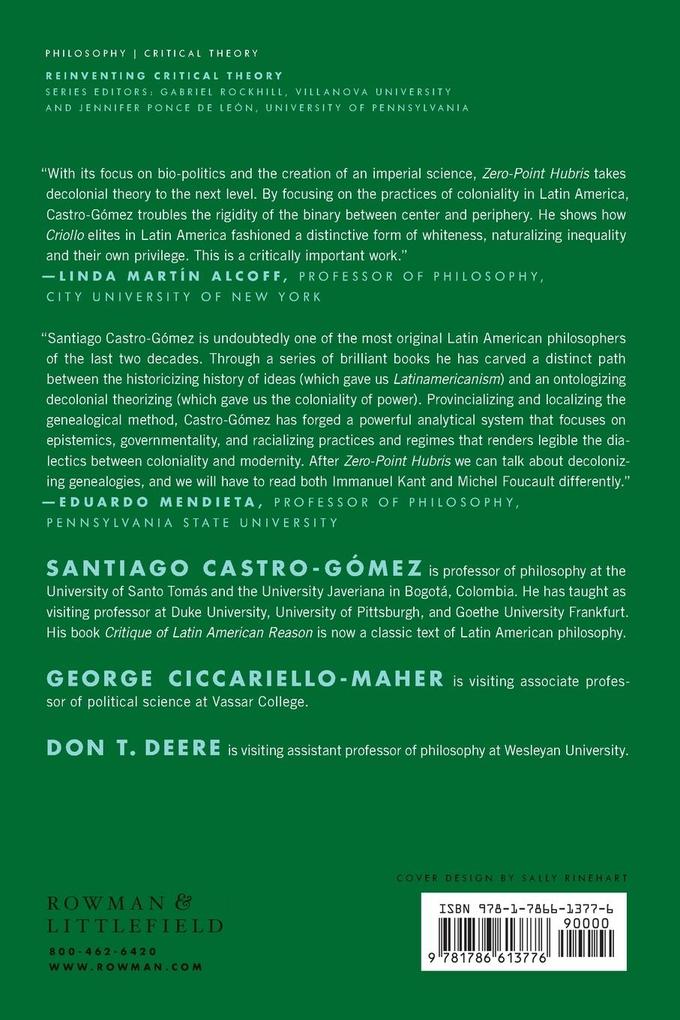
Zustellung: Mi, 30.07. - Sa, 02.08.
Versand in 5 Tagen
VersandkostenfreiBestellen & in Filiale abholen:
Castro-Gó mez argues that in the colonial periphery of the Spanish Americas, Enlightenment constituted not only the position of epistemic distance separating science from all other knowledges, but also the position of ethnic distance separating the criollos from the 'castes'. Epistemic violence-and not only physical violence-is thereby found at the very origin of Colombian nationality.
Inhaltsverzeichnis
Translator's Introduction / 1. Places of Enlightenment: Colonial Discourse and Geopolitics of Knowledge in the Century of Enlightenment / 2. Purus ab omnia macula sanguinis: The colonial imaginary of whiteness in New Granada / 3. Imperial Biopolitics: Health and sickness in the framework of Bourbonic reforms / 4. Illegitimate Knowledges: The Enlightenment as mechanism of epistemic expropriation / 5. Striated Spaces: Geography, territorial politics, and population control / Epilogue / Appendix (to the 2nd edition) / Bibliography / Index
Produktdetails
Erscheinungsdatum
16. Dezember 2021
Sprache
englisch
Untertitel
Science, Race, and Enlightenment in Eighteenth-Century Latin America.
Sprache: Englisch.
Seitenanzahl
332
Autor/Autorin
Santiago Castro-Gómez
Verlag/Hersteller
Produktart
kartoniert
Gewicht
482 g
Größe (L/B/H)
229/152/18 mm
ISBN
9781786613776
Entdecken Sie mehr
Bewertungen
0 Bewertungen
Es wurden noch keine Bewertungen abgegeben. Schreiben Sie die erste Bewertung zu "Zero-Point Hubris" und helfen Sie damit anderen bei der Kaufentscheidung.










